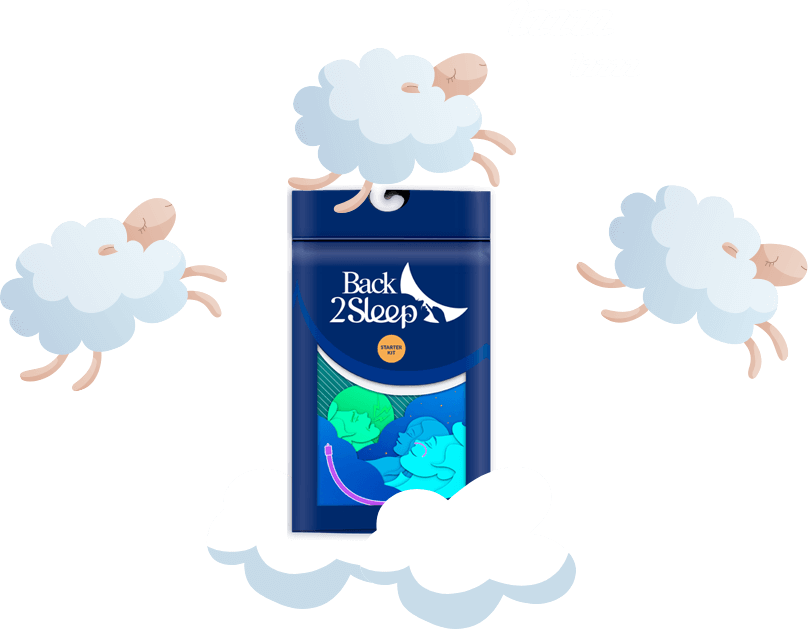Why do we snore loudly at night?
This hoarse and often annoying noise, which occurs during sleep, is a common phenomenon affecting many people.
But do you really know why some nights seem louder than others?
Three main factors can intensify this phenomenon:
💊 fatigue,
💊 age,
💊 alcohol consumption.
Snoring summary
| Important points | Summary |
|---|---|
| How does snoring occur? | Snoring occurs when the muscles in the throat relax during sleep, narrowing the airway and causing the soft tissues to vibrate. |
| Factors that influence snoring | Fatigue, age, and alcohol consumption are key factors that can intensify snoring by increasing muscle relaxation or altering sleep cycles. |
| How to manage and prevent snoring | Adopting a healthy lifestyle, changing sleeping position, using anti-snoring devices, and consulting a doctor if necessary can help reduce or manage snoring. |
| FAQ on snoring | Snoring can indicate serious health problems such as sleep apnoea. Natural remedies can help, but severe cases often require medical intervention. |
How does snoring occur?
Muscle relaxation
When you sleep, the muscles in your body, including those in your throat, relax naturally.
This relaxation is essential for restful sleep, but it can also reduce the space in the airways.
The relaxed muscles of the throat, soft palate, uvula and sometimes the tongue can partially obstruct the passage of air.
Narrowing of the airways
As the muscles relax, the airways narrow, reducing the space through which air can pass.
When air passes through these restricted spaces, it causes a vibration of the soft tissues, in particular the soft palate and uvula, which generates the sound of snoring.
Aggravating factors
Several factors can aggravate this narrowing of the airways and increase vibrations.
🔎 For example, the sleeping position, particularly sleeping on the back, can influence the extent to which the tongue and other soft tissues obstruct the airways.
In addition, factors such as:
💊 obesity,
💊 alcohol consumption before bedtime,
💊 certain medical conditions such as nasal congestion or allergies can also intensify snoring by further reducing air space or increasing resistance to airflow.
Possible consequences
Although often considered a minor annoyance, snoring can sometimes be a sign of more serious health problems, such as:
💊 obstructive sleep apnoea,
💊 if snoring is accompanied by pauses in breathing.
This can lead to excessive daytime sleepiness and other health complications if left untreated.

What factors influence snoring?
The first factor: fatigue
Fatigue is a major cause of snoring.
When you're very tired, your muscles, including those in your throat, relax more.
This muscular relaxation accentuates the narrowing of the airways, increasing vibrations in the soft tissues of the throat as you breathe.
This phenomenon is particularly noticeable after periods of sleep deprivation or chronic fatigue, when the body tries to recover by sleeping more deeply, thus exacerbating snoring.
The second factor: age
Age is also a determining factor in the frequency and intensity of snoring.
As we age, muscle tone in the throat naturally decreases, which can make snoring easier.
In addition, structural changes in the airways that occur with age can also contribute to an increase in snoring.
⚠ Men, in particular, are more likely to snore because of their naturally narrower airways.
The third factor: alcohol consumption
Alcohol consumption has a significant effect on snoring.
Alcohol acts as a muscle relaxant, which can reduce muscle tone in the throat and cause the airways to narrow during sleep.
This increases vibrations in the pharynx and intensifies snoring.
⚠ What's more, alcohol disrupts normal sleep cycles, which can worsen snoring episodes and even lead to sleep apnoea.
How can snoring be managed and prevented?
Adopting a healthy lifestyle
Changing certain habits can go a long way towards reducing snoring.
Avoid before going to bed:
💊 alcohol,
💊 heavy meals.
However, you can :
💊 maintain a healthy weight,
💊 stop smoking.
⚠ Alcohol, in particular, relaxes the throat muscles, which can exacerbate snoring.
Changing sleeping position
Sleeping on your side can prevent your tongue from blocking your airways, which is common when you sleep on your back.
Using an anti-snoring pillow or sewing a tennis ball to the back of pyjamas can help maintain this position.
⚠ You can also read this article on choosing a good sleeping position.
Use anti-snoring devices
The mandibular advancement orthoses are effective in keeping the jaw in an advanced position, freeing the airways during sleep.
These devices are particularly useful for those who suffer from moderate to severe snoring.

Installing a humidifier
Air that is too dry can irritate the mucous membranes of the nose and throat, aggravating snoring.
Using a humidifier in the bedroom can help maintain adequate humidity and reduce irritation.
Throat exercises
Specific exercises can strengthen the throat muscles, reducing snoring.
These exercises include:
💊 pronounce vowels for a long time,
💊 play a wind instrument.
Medical consultation
In cases where snoring is particularly severe or is accompanied by symptoms of sleep apnoea, you should consult a health professional.
A specialist may recommend appropriate treatment, which may include the use of a CPAP or other medical interventions.
Back2Sleep intranasal orthosis
The intranasal orthosis by Back2Sleep is another option for those looking for a simple, non-invasive solution.
It helps to open up the nasal passages, making breathing easier and reducing snoring.
FAQs on snoring
Q. Why do some people snore louder than others?
The individual factors that influence the intensity of snoring are varied, such as:
💊 age,
💊 sex,
💊 the anatomical structure of the airways,
💊 health conditions such as obesity or allergies can all play a role.
🔎 For example, men tend to snore more than women, partly because their airways are naturally narrower.
In addition, excess weight can increase the tissue around the neck, reducing the space in the airways and increasing the vibrations that cause snoring.
Q. Can snoring be a sign of serious health problems?
Yes, snoring can be an indicator of more serious medical conditions, such as sleep apnoea.
This condition is characterised by breathing stops during sleep, which can lead to cardiovascular problems and excessive daytime sleepiness.
Q. Are there any natural remedies for snoring?
Yes, several natural remedies can help reduce snoring.
🔎 For example, the use of essential oils such as eucalyptus or peppermint can help relieve congestion in the respiratory tract.
In addition, lifestyle adjustments such as losing weight, avoiding alcohol before bedtime, and sleeping on your side rather than on your back can also be beneficial.
However, these remedies are generally more effective for mild to moderate snoring.

- Choosing a selection results in a full page refresh.
- Opens in a new window.







